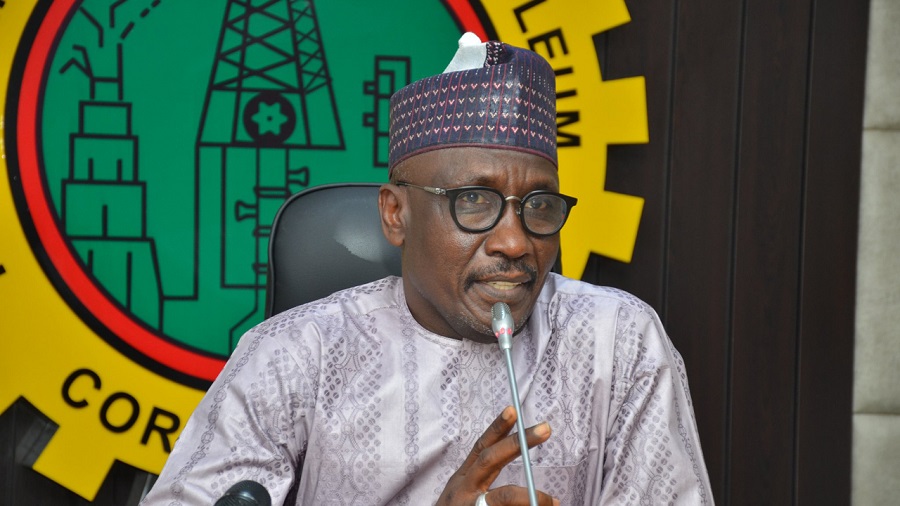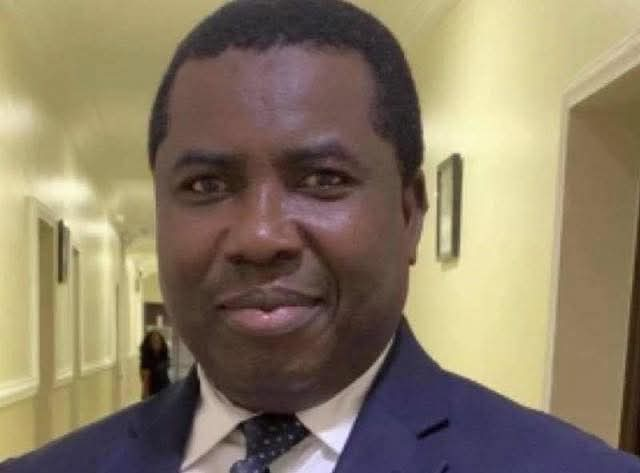
The rising price of crude oil at the international market and the resultant increase in the cost of petrol subsidy are compounding the revenue crisis of the 36 states of the federation, making it more unlikely for them to live up to their financial obligations.
It would be recalled that the states governors had expressed concerns, and asked the federal government to remove subsidies and save states from going bankrupt.
Last week, the Federation Accounts Allocation Committee (FAAC), declared N695.03 billion to be shared by the three tiers of government as revenue for February amid plans by the Nigerian National Petroleum Corporation (NNPC) limited to deduct N242.53 billion for subsidy of Premium Motor Spirit (PMS), popularly called petrol.
Subsidy deductions by the NNPC had often reduced the amount being shared by FAAC, piling pressure on the finances of state governments as they battle to meet their obligations, especially payment of salaries.
While the Debt Management Office (DMO) put the total domestic debt profile of the states and the Federal Capital Territory at N4.1trillion, servicing the debt and financing a N9 trillion budget across the states presents a gloomy outlook for the country.
Available records show that states only recorded about N849.12b Internally Generated Revenue (IGR) in the first six months of 2021. The budget of Lagos State alone for 2022, which stands at about N1.7t, is double the entire IGR of all the states combined. With this development, only a few states may stay afloat with continuous subsidy payments.
States had kicked against the poor remittances by the NNPC to Federation Account, which had been due to fuel subsidy deductions by the oil company.
Although it described the proposed N242.53bn subsidy deduction for this month as a value shortfall, the NNPC stated that the fund would be recovered from February 2022 proceeds due for sharing in the March 2022 FAAC meeting.
It said, The December 2021 value shortfall recovery on the importation of PMS amounted to N210.38bn.
The recovery consists of December 2021 value shortfall of N176.48bn plus the outstanding value shortfall recovery of N33.9bn accrued over the 2021 year. The November 2021 spot arrears of N98.81bn is also outstanding.
The estimated value shortfall of N242.53bn (consisting of N143.72bn for January 2022 recovery plus November spot arrears of N98.81bn) is to be recovered from February 2022 proceed due for sharing at the March 2022 FAAC meeting.
Recall that in February this year, the NNPC had remitted no money to FAAC due to its huge fuel subsidy spending and subsequent deduction from the Federation Account.
On March 3, 2022, state governors lambasted the NNPC for not remitting any funds at last months FAAC meeting.
The Chairman of the Nigeria Governors Forum (NGF) and governor of Ekiti State, Kayode Fayemi, had also wondered how the oil firm was bold enough to declare profit when it had not been meeting its FAAC obligations.
Fayemi, who disclosed this alongside other governors during the Nigerian Governors Forum session on natural resources at the Nigeria International Energy Summit 2022 in Abuja, specifically pointed out that in the last FAAC meeting in February, the NNPC made zero remittance to the federation.
Even though crude oil currently trades above $110 per barrel (a record high), payment of subsidy has eroded almost 90 per cent of funds expected to accrue to the FAAC. In January 2022 only N20.1b was remitted.
While most states are struggling to survive, with payment of salary already a difficult task, the prevailing economic situation of states is bleak, with over N3 trillion deductions expected from FAAC this year.
“The NNPC contributed zero to FAAC this month. This is not the first time that the NNPC is contributing zero to FAAC. In the last couple of months, we have been having these challenges,” Fayemi had said.
According to him, it remains worrisome that an increase in oil price at the international market is creating concerns locally, adding that governors are concerned about how to sustain the sector for a long time.
An energy expert at PwC, Habeeb Jaiyeola, noted that the multiple unique revenue-generating potentials across states must be fully harnessed to increase IGR from each state.
He believes over-dependency on FAAC has not encouraged state governments to critically look inwards to maximise their revenue-generating potential.
According to Jaiyeola, the proposed subsidy budget would mean less availability of funds at FAAC to share to state governments, a development being worsened by the Russia-Ukraine war, which has increased global crude oil prices.
“While this has the potential to increase the FAAC revenue from crude oil, it also has the potential to increase deductions from FAAC due to higher subsidy costs, as a result of increased landing costs,” Jaiyeola said.
“It is very important and urgent for state governments to seriously look at other revenue-generating streams like mining, agriculture, entertainment, information technology and so on, and significantly reduce their dependency on FAAC.”
Similarly, another economist and energy scholar at the University of Ibadan, Adeola Adenikinju, stated that with the condition of things in the states, it would be increasingly difficult to meet obligations to civil servants, pensioners and contractors.
Adenikinju, who noted that most states are presently finding it difficult to implement the minimum wage, argued that states where civil servants drive their economies, would have a greater secondary level effect, as their economies would suffer from limited and uncertain purchasing power.
“Fuel subsidy is an illusion perpetrated by middle-income class and beneficiaries of the existing subsidy regime. The losers are the poor and those that are dependent on the government,” he said.
Reports had it that many states found it difficult to pay salaries in February following the zero remittance from the NNPC in that month. It was learnt that the Kano State Government which had approved the minimum wage of N30,000, has reverted to the old minimum wage of N18,000 for its workers.
“Given the present financial situation, the government would find it difficult to implement the consolidated salary for the month of March, which is though a temporary measure, the state Commissioner for Information,” Muhammadu Garba, reportedly said.
Also in Kogi State, the state government which had also approved the new minimum wage for its workers was reported to have resulted to percentage payment.
In Benue, the state Chairman of the Nigeria Labour Congress, Godwin Anya, said the state had for some time adopted a staggered payment of salaries to its workers.
Oil industry operators say unless the fuel subsidy regime is halted, the deductions by the NNPC might continue, as the company had been the sole importer of petrol into Nigeria for more than four years running.
The oil firm had also been shouldering the cost of subsidy on petrol all these years. The actual cost of the commodity is far higher than the approved N162-N165/litre pump price.
The President, Petroleum Products Retail Outlets owners Association of Nigeria (PETROAN) Billy Gillis-Harry, explained that the actual cost of petrol without subsidy was usually a little higher than that of diesel, adding that but for the subsidy, PMS would have been selling around N550 to N600/litre going by the rise in crude price.
The approved subsidised pump price of PMS in Nigeria is between N162 to N165/litre, but oil marketers stated that the actual cost should be a little higher or about the same price of diesel had it been PMS was deregulated.
Gillis-Harry further stated that the N3tn that was projected by the government as subsidy spending in 2022 might double before the end of the year if the crude oil price continues to rise










